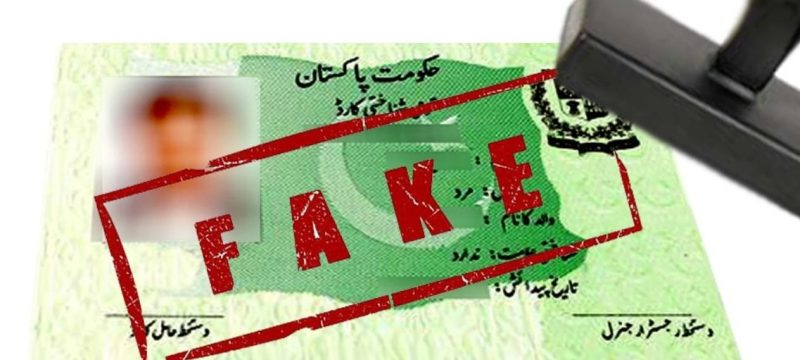Authorities in Pakistan have identified over 250,000 fake CNIC holders, many of whom are Afghan nationals, raising concerns over identity fraud and border security. The National Database and Registration Authority (NADRA) uncovered the irregularities through a special verification system.
Most of the fake CNIC holders were reportedly added to Pakistani family trees illegally, mainly in border regions like Pishin, Chaman, and Quetta. Afghan citizens reportedly paid large sums to agents who facilitated the issuance of these illegal identity cards.
NADRA has begun blocking the fake CNICs, and affected individuals have been instructed to visit NADRA offices for verification. Authorities warned that failure to verify within the deadline will result in permanent cancellation of the card.
This crackdown is part of a long-running effort to combat identity fraud in Pakistan. Over the years, fake CNICs have been used for illegal activities, including criminal operations and unauthorized access to government services.
In 2016, Pakistan carried out a major CNIC verification drive after discovering thousands of Afghan nationals added to Pakistani family trees. During that campaign, NADRA blocked over 450,000 suspicious CNICs and identified corruption within the authority, leading to the dismissal of 765 employees.
A second verification drive began in 2021 using upgraded biometric and AI-supported tools to review millions of family records. Nearly 200,000 suspicious entries were flagged, and citizens were encouraged to use the 8009 SMS service to confirm or reject names in their family trees.
Authorities say these measures are crucial to maintain the integrity of Pakistan’s national database. NADRA continues to monitor CNIC holders closely, particularly in border areas, to prevent illegal issuance and ensure that the national identity system remains secure.
In other news read more about Why Afghan Husbands of Pakistani Women Are Being Denied Citizenship
The latest discovery underscores the ongoing challenges of identity verification in Pakistan and the importance of robust digital tools to curb illegal entries in the national database.









